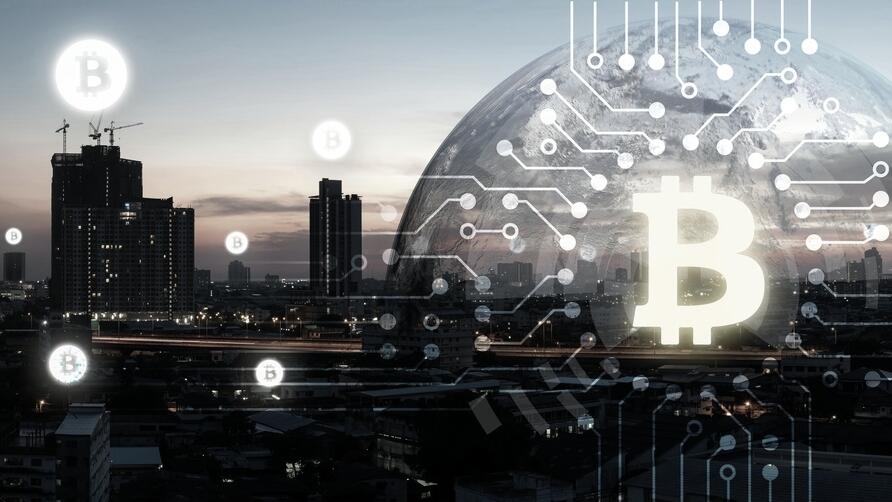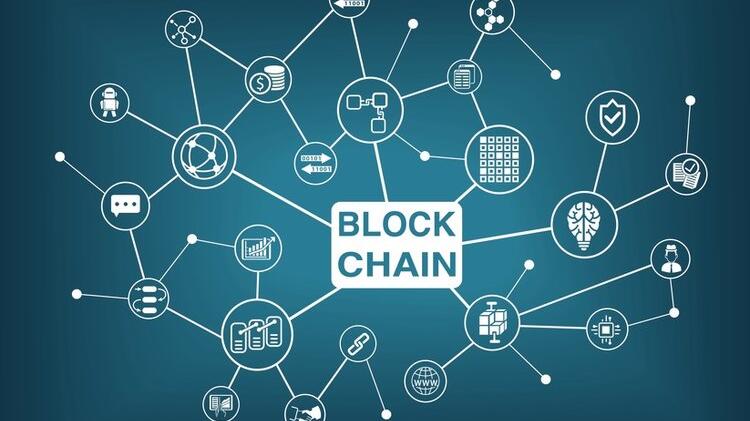 Digitalisation
DigitalisationIs Blockchain the solution for Carbon Tracing, Sustainable Supply Chains and Circular Economy?
Summary
Blockchain is a distributed network which means everyone in the value chain with access rights can access the information saved in the chain. There are various Blockchain startups developing multiple technical platforms. EEIP is mainly interested in the impact blockchain technology can have in accelerating the energy transition through digitalisation. And we will follow up on their future development as well as involve ourselves in initiatives and innovation projects (e.g. via the new EU Horizon Europe Programme) driving blockchain technology forward. If you are a Blockchain developer in the area of sustainable industry, please just drop me a line via email.
Open full article
Is Blockchain the solution for Carbon Tracing, Sustainable Supply Chains and Circular Economy?
For most (or at least many) people Blockchain "has something to do with Bitcoin", kind of a weird digital currency with enormous price fluctuations and recently prominently featured by media following Elon Musk buying Bitcoins for more than a billion USD.
But there are other initiatives underway, driven by global majors in industry and IT and supported by global platforms as well as innovative Blockchain startups. This initiatives are build around tracing different measures but what they all have in common is that they do so alongside the value chain. And value chains are considered to range from e.g. mining of cobalt to the battery in an electric vehicle to what is called a circular economy.
Advantages of Blockchain technology in value chains
The Blockchain exists on a distributed network which means everyone in the value chain with access rights can access the information saved in the chain. And because the transactions (or in other words the information entered at each stage, e.g. carbon emission) must be agreed on each ledger, they cannot be altered or hidden later. Some call this a shared reality or even an example for an indisputable truth.
Challenges for the implementation of Blockchain solutions in value chains
This is about an old topic. And still true in many other areas. Standards.
There are various Blockchain startups developing multiple technical platforms. And quite often this platforms partly overlap which results in slow adoption in industry today. However, driven by (or forced by) bigger alliances, this platform developers are requested to work together to develop standards for interoperability to an extend that data can move between platforms.
Another aspect to be looked at in a separate post is the more medium future of such platforms.
- Will we see multiple platforms working next to each other?
- Or will we see some super-platforms emerging like Google or Facebook in the B2C world.
- What would that mean for the platform users along the value chains.
- Would they be forced to join such a platform, even for a high price as they would otherwise be out of business?
- And what does that mean in terms of platform business models?
For the time being, as an energy transition platform, EEIP is mainly interested in the impact blockchain technology can have in accelerating the energy transition through digitalisation. And although such platforms are capable of covering aspects outside of our scope, e.g. labour conditions, their potential direct (e.g. carbon tracing) and indirect (circular economy) impact means that we will follow up on their future development as well as involve ourselves in initiatives and innovation projects (e.g. via the new EU Horizon Europe Programme) driving blockchain technology forward.
Some examples of Blockchain usage in value chains (early phase)
START (mining, Rio Tinto)
A sustainability label for responsible aluminium covering 10 criteria, from carbon footprint and energy sources to safety, diversity and regulatory compliance.
Carbon Tracing Platform (COT) of the Mining and Metals Blockchain Initiative (MMBI)
The World Economic Forum's MMBI initiative is collaboration between the WEF and 7 leading industry players (Anglo American, Antofagasta Minerals, Eurasian resources Group, Glencore, Kloeckner, minsur, Tata Steel) and has released a proof of concept.
Recycled Cobalt
Volvo Cars completed first Blockchain for the usage of recycled cobalt.
Responsible Sourcing Blockchain Network (RSBN)
Members include IBM, Volkswagen, Volvo, Fiat Chrysler, Huayou Cobalt, LG Chem, RSC Global
Forcefield
Blockchain based platform to make post-trade commodity transaction processing cheaper, safer and more efficient. Partners are ING, Accenture, ABN Amro, Anglo American, CMST International, Hartree Partners, Mercuria, OCBC bank
Orobo platform, circular economy
Open and decentralized platform to enable easy adoption of circular business models by leveraging distributed ledger technologies (Blockchain)
Our request to you
As this is likely only a snapshot of what is going on, we appreciate directing us to further applications. In case you are a Blockchain platform developer in the area of sustainable industry, you are kindly invited to present your projects or case studies joining our open and free EEIP Writer Network. You can publish directly via our open editor. Please just contact me under juergen.ritzek(at)ee-ip.org
Stay tuned
In case you are aware of any of such platforms, either concept stage, in development or already in operation, please just drop me a line to juergen.ritzek(at)ee-ip.org
In case this topic is of interest for you, I recommend you to sign up for our free monthly newsletter on DIGITALISATION



